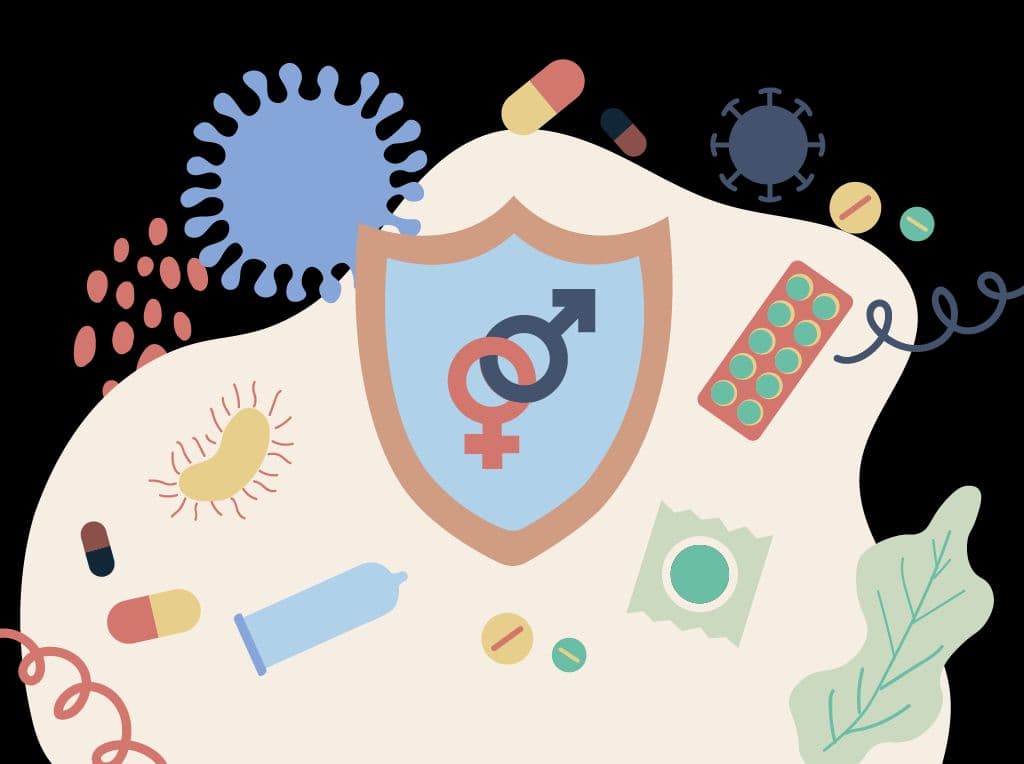There, I said it: Sex is just not the same after childbirth. Your vagina changes and permanently so. The crib that you bought on a discount sale is loaded with unsolicited parenting advice. Days and nights cease in existence amidst the wailing from the bundle of love. Just as your hormones stop going haywire, your schedule falls into shambles. When it’s time for diaper change, it’s also time for evolving relationship dynamics. However, when science says that waning sex life post childbirth is due to stress, society and oppressed sexuality, you should still smell a rat.
The scientific approach towards sexuality is probably best described cold. Research focuses solely on sexual behaviour and anatomy with ambiguous references to sociology. It is a blatant failure of science (and perhaps of words too) that attempts to describe psychological parameters that are painfully futile. Scientists argue a lot over definitions. Their language consists of intricate diagrams explained by complicated jargons, and it can never cover the expansive, spontaneous sexual script that we follow, instinctively. But just as much as these limitations of science exist, sex exists. Even if in extremely limited quantities for mothers.
I promise that this is the end to our little science bashing session. Within the paradigm of limitations that it exists in, science still strives to address postpartum sexuality.
Unsurprisingly, female sexuality has been a compulsive topic of interest. It has every element of what is termed the sensational science – taboo, controversy and audience. In the ‘40s, Alfred Kinsey was met with scathing criticism when he wrote Kinsey reports that mentioned female sexual liberation and psychosocial status together. He had dared to challenge the hegemony of Freud, nimbly dismissing his hypothesis of the female being a sexual being and disputing his indifference to clitoral orgasms. Outrageously, he had done so with explicit evidence, so philosophers quarrelled over his sample space of ‘prisoners and prostitutes’.

To quickly cover the basics, sexual health is not just the absence of an STD. Or a UTI. Sexual health is physical, emotional, mental and social well being with respect to sexuality. Each of those words has a distinct identity and significance, so please don’t skip over them as synonyms. Healthcare professionals are often asked when it is safe to return to a sexual lifestyle post-delivery. While there is no universally agreed timespan for abstinence, women tend to usually return to penetrative sex 6 to 10 weeks following delivery, although a minimum of 6 weeks is recommended to avoid infections or uterine inflammation. It is of little surprise that women having undergone natural delivery return faster and report fewer complaints than those who had to undergo C-sections. However, the nature and frequency of most complaints are similar.
Reduced sexual interest and arousal is one of the most commonly reported problems. It is slightly disingenuous to suggest that reduced sexual interest naturally leads to reduced sexual arousal. Sparing you of the statistics, young mothers have lower sexual desires for up to a year following childbirth compared to their sexual desires prior to conception. However, the sexual interest does seem to return with time.
While most of us have a preconceived model of arousal, all thanks to teen fiction, any mention of squamous epithelia or vasodilation would probably kill the mood, so let’s not go there. However, the unfortunate end to the romantic scrawl of mothers is that the levels of sexual arousal following delivery may never again equal the arousal levels preconception, although it is important to keep in mind that age and social responsibilities play variables in the equation.
Penetration pain is when penetrative sex induces pain of varying severity to the female, and is common postpartum. It is extremely irksome to finally get the green signal to a normal sex life only to end up not enjoying it. But this too shall pass. Most women report that the pain decreases significantly in a few months. Infections, tearing and breastfeeding may cause pain, although dryness is a very common factor. Hormonal levels of oestrogen, the chemical responsible for arousal and lubrication, fall drastically following delivery from highly elevated levels during pregnancy, thus causing vaginal dryness. It might be a good idea to research water based lubricants at this point.
I’m doubtful if I can mention that sexual satisfaction can be measured and still sound credible. Contradictory reports exist on the sexual satisfaction discussion, and the reports themselves are ubiquitously controversial. They rely on the inaccurate retrospective memories of young mothers months after the postpartum period studied and clearly, the mothers have more things on their plate than to remember how aroused they felt a few months ago. Relativity of sexual satisfaction and the inability of the sample cohort to meaningfully represent a subpopulation has led to studies being questioned on their conclusions. However, the mode of birth, vaginal trauma, breastfeeding, pre-conceptive sex life and emotional comfort influence both sexual arousal and frequency.
Not for a second will I pretend that these factors are all that influence the sex life of a mother. The sociological aspect is complicated and unlike science, cannot be resolved within paragraphs with observations and statistical analysis. The vagina is drier and perceptively looser. Body consciousness of the mother takes over the once confident persona. Economic stability and emotional comfort play key in maintaining a healthy relationship dynamic with the partner. Postpartum depression gets as real as it sounds. As self-identity changes, the social structure reshuffles. Parenthood makes its unyielding demands of career and emotional investment. It could be a struggle to prioritise sex when all of these hit with full force. But women do persevere.
As much as this article has made you dread the baby bump, University of Michigan offers an article full of hope. The study correctly identifies that the partners’ of mothers are often ignored in research and describes that their sexual appetite plays a crucial role in making sex enjoyable post childbirth. They found high sexual desire in new parents and an increasing need for intimacy in happy couples. Other studies have shown that in the presence of a healthy relationship dynamic, an increasing desire for intercourse is shared by social and relational factors. That was their way of saying excitement is contagious. And that sex gets better.
But regardless of the turns the excitement graph takes, the silence around sexuality has been a long standing social gag. While the conversation about the physical health of the child and the mother are loud, that of sexual health post childbirth rarely occurs. The anathema towards female sexuality, especially postpartum is mindless. Talk to your physician or gynaecologist. Talk to your partner as well. There is no shame in seeking help or taking it slow. Remember that no matter how it feels, you are not alone.
Disclaimer - This information is provided for educational purposes and should not be construed as medical advice. Please consult with your healthcare practitioners before undertaking any changes in your diet or adding supplements.
ProactiveForHer is a digital clinic for women, offering accessible, personalized, and confidential health-care solutions. We offer products and services for out-patient health concerns of Indian women, across their lifetime - from puberty to pregnancy to menopause. To know more on the sexual and reproductive health of women, visit https://www.proactiveforher.com/

